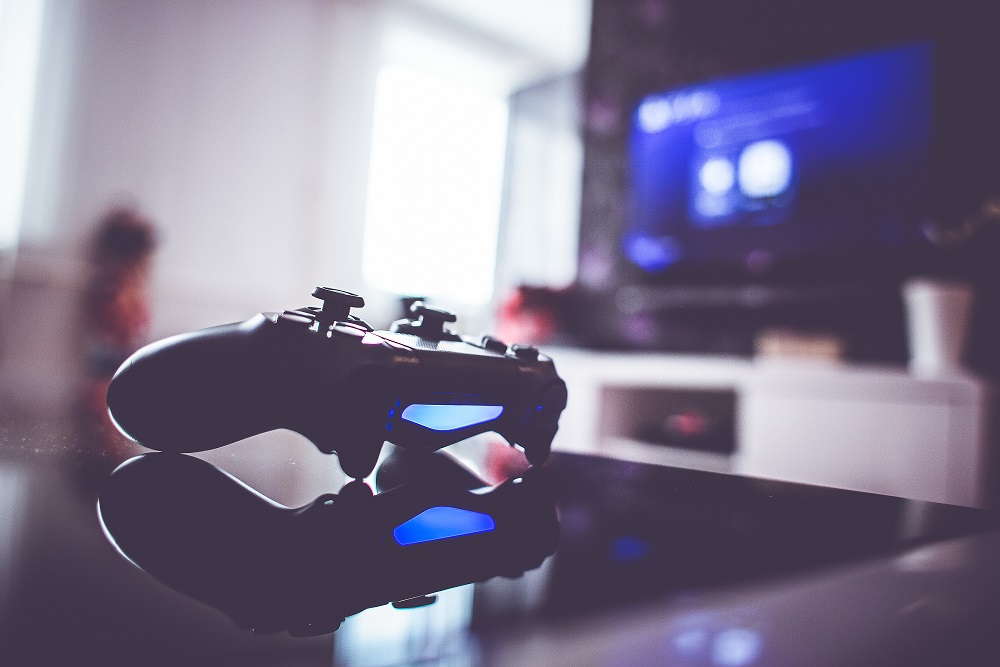News | Thursday, 18th May 2017
The competitive world of eSports
Research explores the benefits and the dark side of professional video gaming

Professional video gaming and the world of competitive eSports is becoming increasingly popular around the world but there may be a darker side to making a career out of gaming according to new research.
Electronic Sports, more commonly known as eSports, are organised, competitive video game tournaments for professional players. Certain competitions offer large cash prizes and are often staged in front of live audiences and streamed to millions online.
Competitive tournaments date back to the 1980s, with Atari hosting a Space Invaders Championship with over 10,000 participants. Since then, eSports has developed into a lucrative market that had a global audience of 320 million people and revenues of £400m in 2016.
Dr Tom Brock, Lecturer in Sociology at Manchester Metropolitan University, researches video games culture and has recently looked into both the benefits and negatives to life as a professional gamer.
Paid to play
He argues that: “With the advent of the internet and the popularity of gaming more generally, we’ve seen eSports turn into an international sporting activity with lots of money to be made. More people are becoming paid, professional gamers and essentially turning their hobbies into careers. That does have an impact on a person psychologically, ultimately impacting their autonomy and society’s moral character.”
His paper ‘Roger Caillois and eSports: On the Problems of Treating Play as Work’ published in Games and Culture argues that the pressures and demands of professional computer gaming orientate human cognition towards instrumental thinking which feeds the exploitative ‘dog-eat-dog’ world of eSports.
The article presents a number of case studies to show how treating play like work ‘corrupts’ the values that players attach to games plausibly leading to unhealthy behaviour like obsession and potentially risky, illegal behaviour, in the form of match-fixing. In the case of the latter, it is suggested that cheating can be considered as ‘survival strategy’ within such a highly competitive working environment.
The benefits
Despite this, gaming does have psychological and social benefits. Dr Brock said: “My research and a lot of research out there has convincingly moved the argument away from the idea that video games isolate users, that the players are using the games as an escape from reality and that they are ultimately bad for us and society. When we play video games we experience many positive feelings as well.”
Research by Dr Brock published in the Journal of Consumer Culture shows that despite negative aspects of video gameplay, like failure and loss, players also derive satisfaction and motivation from the games. Overcoming challenges and complex puzzles in games is deeply rewarding, and may even help people deal with personal psychological issues, like anxiety or OCD.
He added: “Positive social interactions and relationships with others can and do emerge within videogames spaces and regularly playing games can help maintain social relationships. It is also important to consider how typically problematic aspects of online gaming, like ‘trolling’, can be rewarding because they create moments of cathartic laughter.”
Dr Tom Brock recently discussed his research with The Conversation’s podcast, Anthill - All the world’s a game - and will be hosting a one-day symposium on ‘The Future of Esports: Challenging Work and Gender Issues in Pro Gaming’ in August. For more details and to get tickets to the free event, click here.
-------------------------------------
Notes to editors
‘Roger Caillois and E-Sports: On the Problems of Treating Play as Work’, Tom Brock, Games and Culture, Vol 12, Issue 4, pp. 321 – 339 http://journals.sagepub.com/doi/abs/10.1177/1555412016686878?journalCode=gaca
‘Videogame consumption: The apophatic dimension’, Tom Brock, Journal of Consumer Culture, 0(0) 1–17 http://journals.sagepub.com/doi/pdf/10.1177/1469540516684185
For further information or to speak to Dr Tom Brock, please contact:
Maryam Ahmed in the Manchester Metropolitan University press office on 0161 247 2181 or MAhmed@mmu.ac.uk




